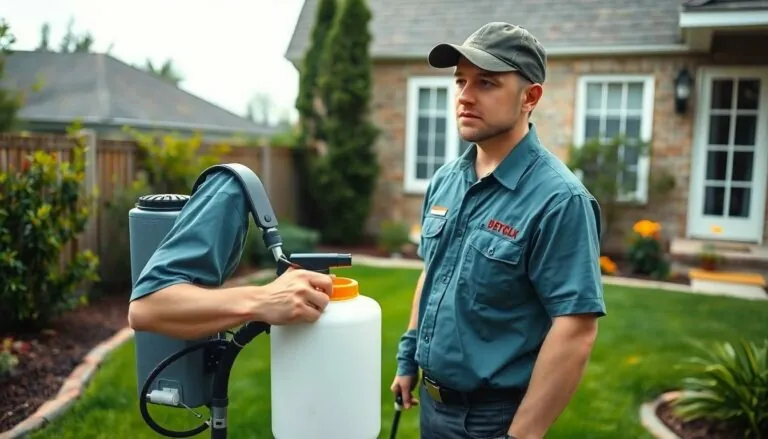Table of Contents
ToggleIn a world where life throws curveballs like a toddler with a baseball, having the right home and business insurance is like wearing a helmet—essential for protecting what matters most. Whether it’s a leaky roof or a surprise visit from a raccoon looking for a snack, insurance can save the day. It’s the safety net that catches you when the unexpected happens, keeping your peace of mind intact.
Overview of Home and Business Insurance
Home and business insurance provides essential protection against various risks. These policies grant coverage for property damage, liability claims, and unexpected events.
Definition and Importance
Home insurance protects residential properties from risks like fire, theft, and natural disasters. It ensures financial support for repairs or replacements, thus safeguarding homeowners’ investments. Business insurance, on the other hand, encompasses a wider range of risks specific to commercial activities. This type of insurance covers property, liability, and employee-related incidents. Companies relying on business insurance gain stability and security during unforeseen circumstances, ensuring uninterrupted operations.
Key Differences Between Home and Business Insurance
Home and business insurance differ in several key areas. Home insurance typically focuses on individual properties and personal belongings while offering liability protection to homeowners. Business insurance covers commercial properties and assets, including equipment and inventory. Policies for businesses often include specialized coverage for distinct risks like professional liability and employee injuries. Additionally, home insurance generally requires lower premiums compared to business insurance policies, which are influenced by the scale and nature of the business operations. Understanding these differences aids in selecting the right coverage.
Types of Home and Business Insurance

Different types of home and business insurance provide tailored protections for various needs. Understanding these categories helps in selecting suitable coverage.
Homeowners Insurance
Homeowners insurance protects residential properties from risks like fire, theft, and natural disasters. This coverage typically includes financial support for repairs or replacements of the dwelling and personal property. It also offers liability protection against accidents occurring on the insured property. Policies often include additional living expenses coverage, which pays for temporary housing during repairs. Homeowners insurance varies by property type and location, thus it’s essential to evaluate specific needs.
Renters Insurance
Renters insurance offers coverage for personal belongings within rental properties. This type of insurance protects against risks such as theft, fire, and certain disasters. Liability coverage is often included, shielding renters from legal claims for accidents occurring within the rented space. Many policies also provide additional living expenses if the rental unit becomes uninhabitable due to covered events. Those renting homes or apartments should consider this insurance, as it safeguards valuable possessions.
Business Property Insurance
Business property insurance covers physical assets like buildings, equipment, and inventory from damage or loss. This type of policy protects businesses from risks such as fire, theft, and vandalism. Coverage typically includes loss of income due to business interruptions and may also extend to equipment breakdown. Businesses should assess the value of their assets when selecting coverage limits. Ensuring adequate protection against physical risks is vital for maintaining operational stability.
General Liability Insurance
General liability insurance protects businesses from claims of bodily injury, property damage, and personal injury. This type of coverage is essential for safeguarding against lawsuits and other legal claims. Policies generally cover legal fees, settlements, and medical expenses resulting from incidents related to business operations. Many small business owners consider this insurance a necessity for financial security. Evaluating potential risks in the business environment enhances the effectiveness of this coverage.
Factors to Consider When Choosing Insurance
Selecting the right insurance requires careful consideration of several factors. Identifying unique coverage needs plays a vital role.
Coverage Needs
Assess the specific risks related to home or business environments. Homeowners typically need protection against fire, theft, and natural disasters. Businesses require broader coverage, often including property damage, liability claims, and employee-related incidents. Evaluating individual circumstances ensures the policy addresses relevant dangers. Customizing coverage options, like additional riders for natural disasters or liability extensions, enhances protection.
Budget and Premiums
Budget constraints significantly influence insurance choices. Home insurance frequently costs less than business coverage due to differences in risk factors. Understanding monthly or annual premium costs helps individuals and businesses plan financially. Comparing quotes from multiple providers reveals pricing variations. Seeking policies with appropriate discounts or bundled options can lead to substantial savings in the long run.
Policy Limits and Deductibles
Determining policy limits and deductibles impacts overall coverage. Higher limits provide broader protection, but they often result in increased premiums. A deductible represents the out-of-pocket cost before insurance coverage kicks in. Weighing the pros and cons of higher deductibles against premium costs assists in finding the right balance. Focusing on comprehensive coverage while keeping potential expenses manageable is always important.
Benefits of Having Insurance
Having home and business insurance offers essential advantages, including financial protection, peace of mind, and compliance with legal requirements.
Financial Protection
Insurance provides significant financial protection against various risks. Property damage due to natural disasters, theft, or accidents leads to substantial repair costs. Coverage helps mitigate these expenses, ensuring policyholders aren’t left to bear the financial burden alone. Additionally, liability claims can arise unexpectedly, resulting in costly legal fees or settlements. Insurance policies offer safeguards, covering these expenses and protecting personal and business assets.
Peace of Mind
Peace of mind from having insurance creates a sense of security amid uncertainty. Knowing coverage is in place alleviates stress associated with potential risks. Homeowners benefit from the assurance that their properties are safe, while businesses gain confidence in their operations, protecting them from unforeseen circumstances. This coverage fosters a resilient mindset, allowing individuals and entrepreneurs to focus on their daily tasks without the looming threat of financial loss.
Legal Requirements
Legal requirements often dictate the necessity of certain insurance types. Many states mandate liability insurance for businesses to protect employees and customers. Homeowners may face mortgage obligations that require specific insurance policies. Compliance with these regulations ensures policies meet standard coverage requirements and protects against penalties for lack of insurance. By addressing these legalities, individuals and business owners maintain compliance and protect their interests effectively.
Common Misconceptions About Insurance
Misconceptions about insurance can lead to inadequate coverage and financial risks. Understanding these myths helps individuals and businesses make informed choices.
“Insurance Is Too Expensive”
Many believe insurance comes with a hefty price tag, making it unaffordable. In reality, costs vary based on factors like property value, location, and coverage type. Shopping around for quotes provides clarity, as different insurers offer competitive pricing. Bundling home and business insurance often leads to discounts, further reducing expenses. Individuals should prioritize understanding their specific coverage needs before dismissing insurance as too costly.
“I Don’t Need Both Home and Business Insurance”
Some individuals think combining home and business under one policy suffices. Managing a home-based business without separate coverage exposes owners to risks. Home insurance typically doesn’t cover business-related liabilities or property losses. Separate business insurance addresses unique risks such as professional liability and employee injuries. Understanding these distinctions clarifies the necessity for both types of coverage, safeguarding personal and professional interests.
Having the right home and business insurance is vital for safeguarding against unexpected challenges. These policies not only offer financial protection but also provide peace of mind, allowing individuals and businesses to focus on what matters most. By understanding the differences between home and business insurance and evaluating specific coverage needs, one can make informed decisions that ensure adequate protection.
Investing time in selecting the right insurance can prevent future financial burdens and legal complications. With the right coverage in place, homeowners and business owners can navigate their daily lives with confidence, knowing they’re prepared for whatever comes their way.



